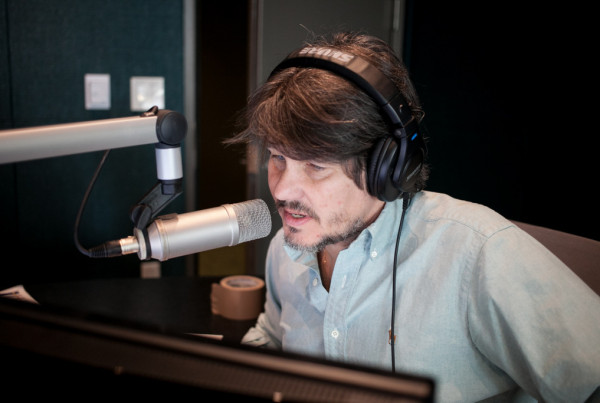Terry Allen is a mixed-media southwestern storyteller. David Byrne is a fan of his and a former collaborator. Ryan Bingham and Lucinda Williams are among the dozens of famous musicians who’ve covered his songs. His artwork is in the collections of the Met, MoMA, the Hirschorn, and various art museums around Texas. He’s written award-winning plays and cemented a reputation as a creative renaissance man.
But these days, Allen finds himself looking more in the rear view mirror as a new generation discovers what have been described as Allen’s musical masterpieces: two albums of recorded music, rereleased on vinyl for the first time since the 1970s – his haunting debut, “Juarez”, and his biting satirical ode to his hometown, “Lubbock (On Everything)”.
Allen tells Texas Standard that he used Lubbock as a way to motivate himself, to propel himself out of the town. He says he expressed a hostility for the town for many years, but when he sat down to listen to his record, he realized he felt something else about it too.
“It was kind of an odd collision that happened with me – to suddenly realize how different what I was expressing externally and what was happening internally,” Allen says. “Because all those songs were about really caring about that place and those people, even though … there’s layers of satire laid on top of it.”
On Lubbock producing prominent musicians and artists:
“I think the very isolation and flatness and endlessness and epic boredom actually motivates people to use their imagination. You have to function on your own and I think that’s one of the things that happened. A lot of people have nothing else to do but play music, write songs, make pictures, do whatever and leave.”
On his art:
“I had no concept of being an artist, what that actually meant, when I was growing up. When I was in high school I did a lot of drawings on notebooks and for other kids – stuff like that. I used to do pretty well doing porno drawings for kids for like a quarter a pop.
“I actually got in some trouble for doing this. I was also expelled for playing a song that I wrote called ‘Roman Orgy’. So the two things I was in trouble for in high school ended up being what I do.”
On his album “Juarez”:
“It’s a story. ‘Juarez’ always was a haunting to me. … It’s always been a presence – and it’s been a theater piece, it’s been a drawing, it’s been texts, installations. Over the years it’s gone through all these transformations and I’m still mystified by how it came and where it came from.”
On his album “Lubbock (On Everything)”:
“’Lubbock’ was different because it was written piecemeal over a period of time. … When I [wanted] to put another record together I started digging up those songs and I realized there was a whole other kind of continuity there.”
On making both records:
“Both of them instilled in me what a record should be, what a song should be. What you’re dealing with when you step into the mystery of making something.”















